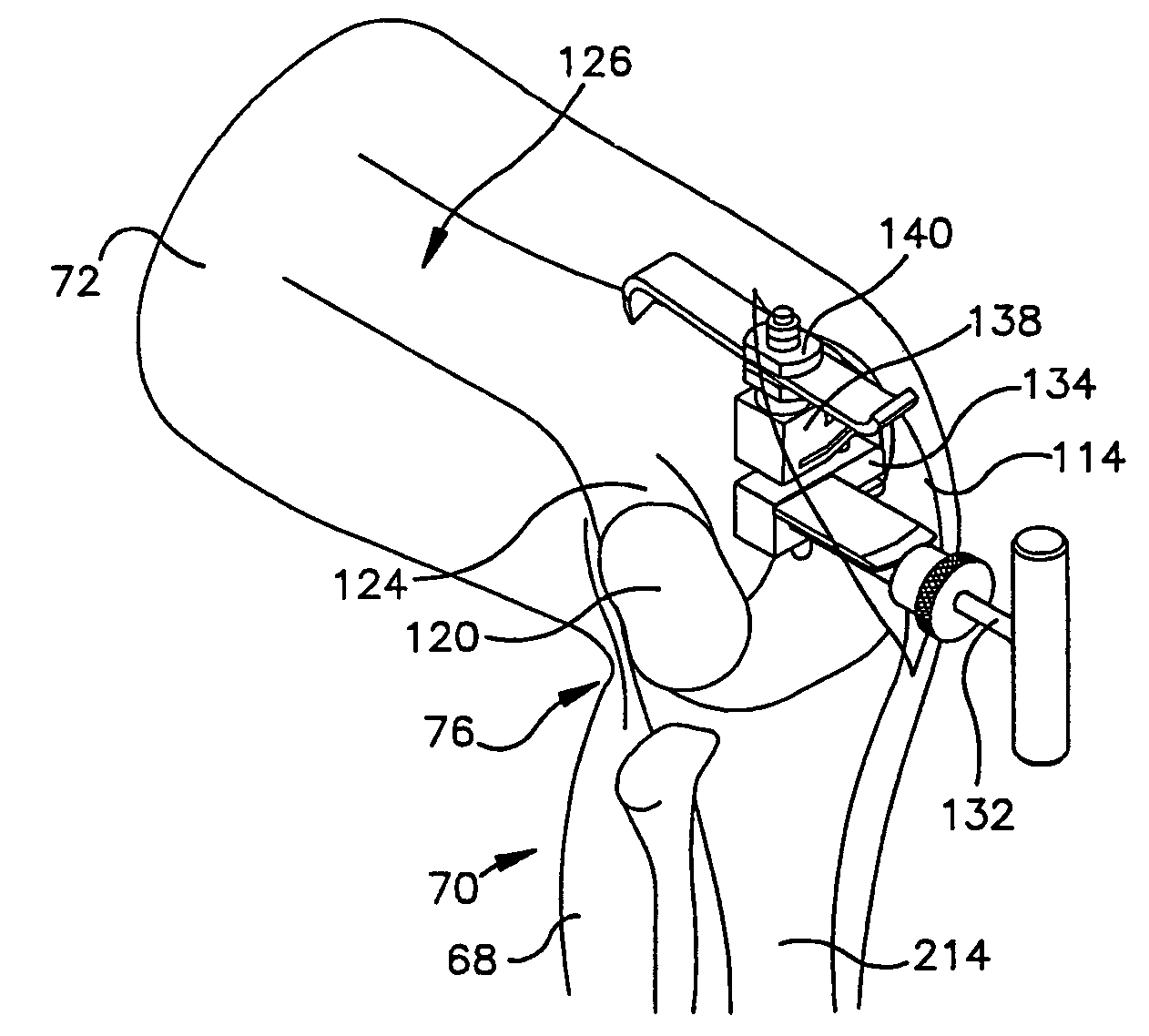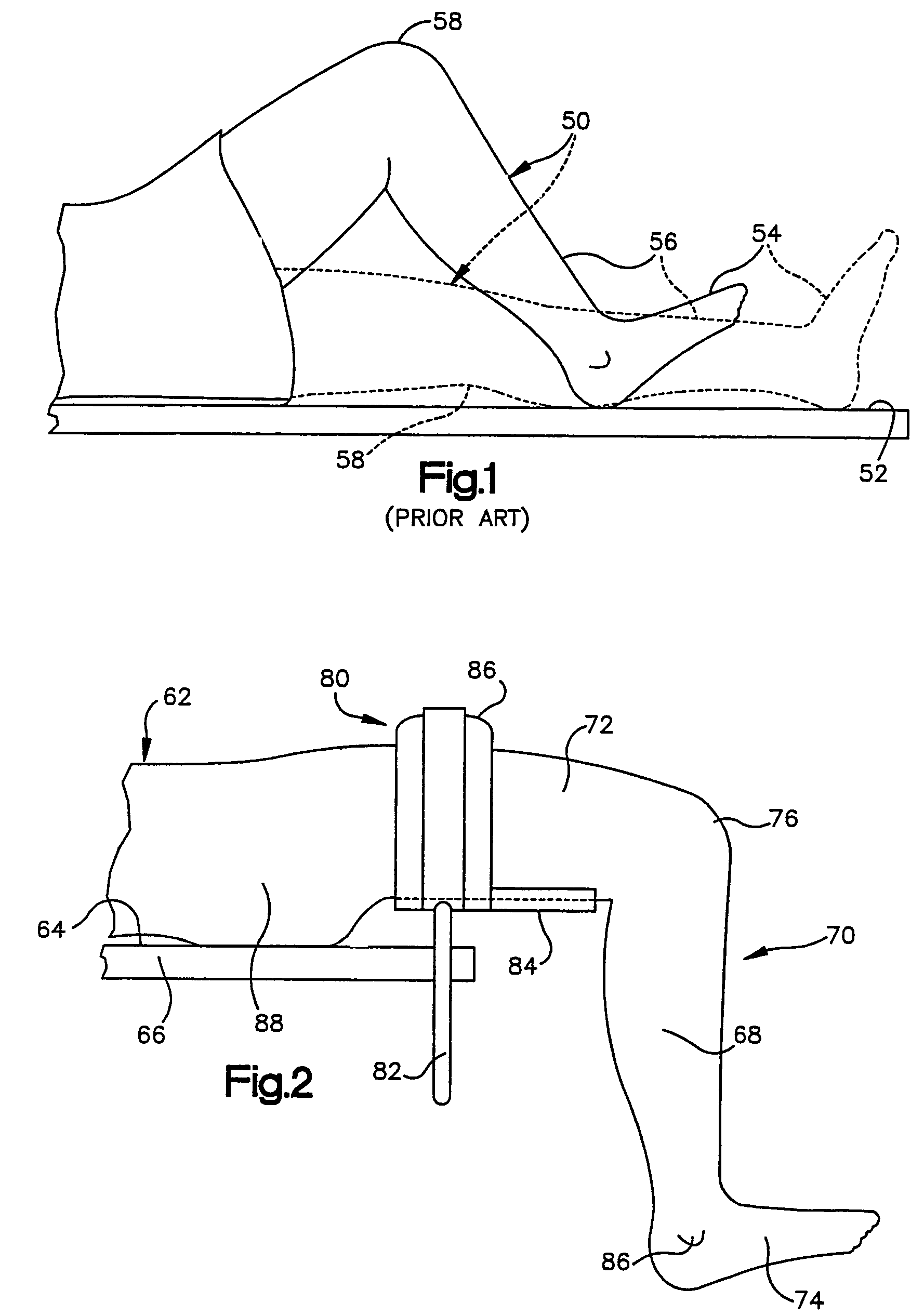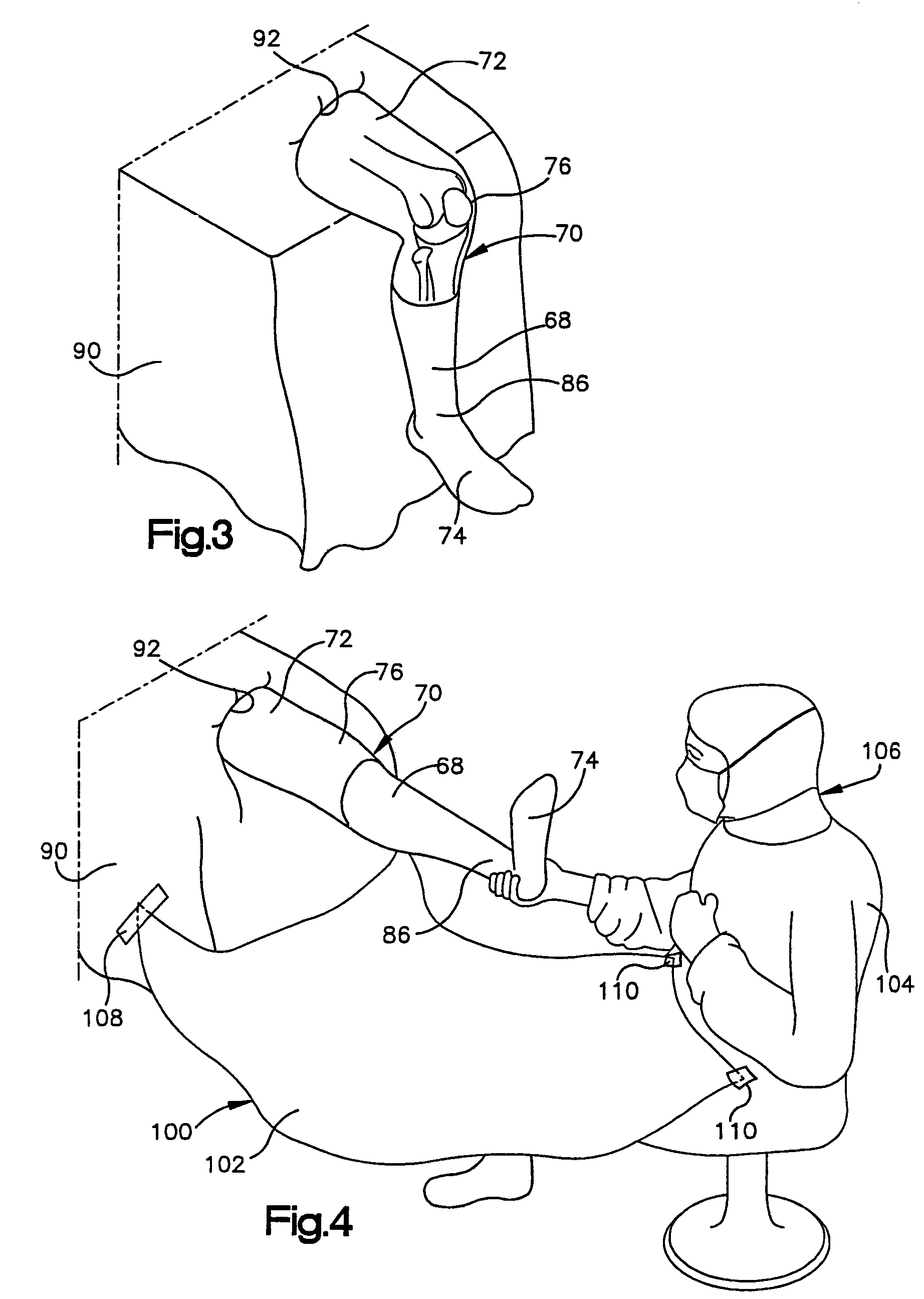Limited incision total joint replacement methods
a total joint replacement and limited incision technology, applied in the field of new and improved methods of surgery, can solve the problems of soft tissue in the knee, difficult access to posterior or soft tissue to remove bone spurs (ostified), ligaments in the back of the joint, and/or residual soft tissue or connective tissue blocking further flexion, so as to facilitate the balancing of ligaments. the effect of the patient's leg
- Summary
- Abstract
- Description
- Claims
- Application Information
AI Technical Summary
Benefits of technology
Problems solved by technology
Method used
Image
Examples
Embodiment Construction
[0086]Known Method of Performing Surgery on a Patient's Knee
[0087]During the performance of surgery using known methods, a patient is supported on an operating table or other support surface 52 (FIG. 1). When a leg 50 of the patient is in the extended position illustrated in dashed lines in FIG. 1, a foot 54 connected with a lower portion 56 of the leg 50 is disposed above the support surface 52. During an operation on a knee portion 58 of the leg 50, the knee portion is raised and lowered relative to the support surface as the leg 50 is flexed and extended. However, the foot 54 is always disposed above the support surface 54 and may be supported by the support surface throughout the operation.
[0088]During this known operating procedure, an incision is made in the knee portion 58 of the leg 50 when the leg is in the extended position illustrated in dashed lines in FIG. 1. At this time, the foot 54 of the patient may rest on the support surface 52 or be disposed in a foot support loc...
PUM
 Login to View More
Login to View More Abstract
Description
Claims
Application Information
 Login to View More
Login to View More - R&D
- Intellectual Property
- Life Sciences
- Materials
- Tech Scout
- Unparalleled Data Quality
- Higher Quality Content
- 60% Fewer Hallucinations
Browse by: Latest US Patents, China's latest patents, Technical Efficacy Thesaurus, Application Domain, Technology Topic, Popular Technical Reports.
© 2025 PatSnap. All rights reserved.Legal|Privacy policy|Modern Slavery Act Transparency Statement|Sitemap|About US| Contact US: help@patsnap.com



